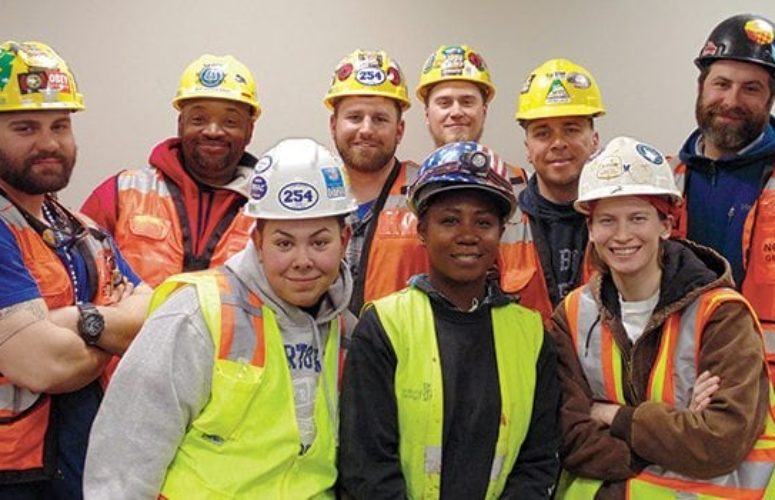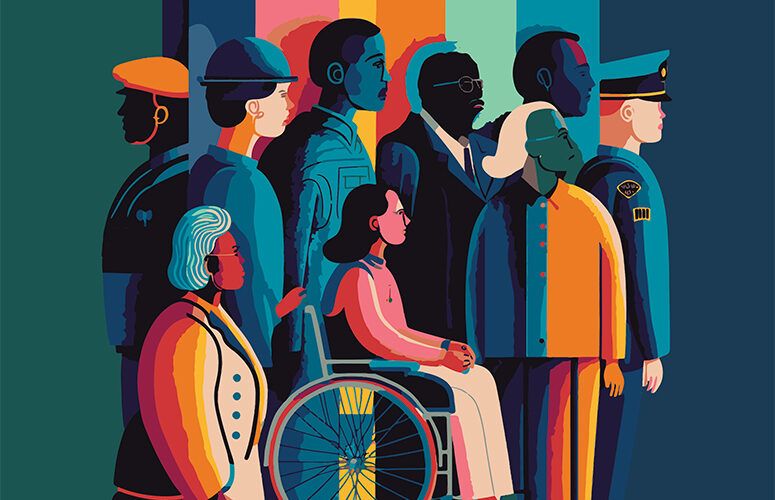
Embracing Diversity and Multicultural Inclusiveness
This is the surest path to long-term success.
By Lorna Pappas, Contributing Writer On May 22, 2017Talk about diversity and inclusion has been building for years. Now more than ever, companies are focused on supporting and celebrating a mix of employee populations – regardless of ethnicity, race, political belief, sex and sexual orientation, religion, age and disability.
Fortunately, as the 11th most diverse state in the nation, based on analysis of the Census Bureau’s March 2016 Current Population Survey, New Jersey is home to a huge potential pool of minority employees: As many as 44 percent of the state’s residents are non-white, compared to Vermont (6 percent), West Virginia (7 percent), Maine and New Hampshire (9 percent each) and Montana (10 percent). New Jersey also has the third-largest population of foreign-born residents in the nation, behind California and New York. Its 10 most diverse cities include Atlantic City, Bergenfield, Carteret, Englewood, Franklin, Hackensack, Jersey City, North Brunswick, Pennsauken and Piscataway.
These numbers and geographic spread bode well for New Jersey companies dedicated to employing and marketing to diverse and multicultural populations to unlock corporate potential and build lasting success.
Identifying With Personal and Cultural Experiences
At PNC, for example, with 304 branches across the state, “we are committed to supporting diversity and inclusion within and outside the company,” says Linda Bowden, New Jersey regional president for this leading financial services firm. “People want to work for an organization that identifies with their personal and cultural experiences, and in communities as diverse as New Jersey’s, embracing diversity and inclusiveness is the surest path to long-term success, both for our clients, our business and our employees.”
PNC operates several Employee Business Resources Groups that span cultural and lifestyle backgrounds, including Latino, African-American, Asian-American, Multicultural, PNC Proud, Women’s Connect, Military and Veterans and more, reports Bowden. The company continues to seek new and innovative ways to engage its colleagues in PNC’s diversity and inclusion programs. These efforts “reflect PNC’s responsibility to create a diverse, inclusive work environment for our employees that is welcoming and celebrates their personal and cultural identities,” Bowden says. The company also is committed to supporting diverse cultural and lifestyle backgrounds by continually supporting and hosting events and celebrations in its hundreds of local communities.
“Supporting diversity and inclusion across the company and within our New Jersey region is more than just good business: We believe it is the right thing to do,” she adds. “Because our state is one of the most diverse regions in the country, we have a responsibility to understand and support our customers in a way that reflects who they are.”
The Key to Unlocking Corporate Potential
At the Campbell Soup Company, Camden, diversity and inclusion are foundational elements of its culture and are critical to business success, particularly since its products are found in more than 90 percent of American homes and sold in more than 100 countries.
To better meet the needs of America’s increasingly diverse population, “we believe our workforce should mirror the increasing diversity of our consumers. We keep our finger on the pulse of diversity trends in the marketplace in order to help us create an authentic connection with our current and future employees,” Elizabeth Morrison, the company’s global director of workforce diversity and inclusion (WD&I), tells New Jersey Business. “Ensuring and respecting diversity and creating an inclusive workplace will continue to be key to unlocking our potential.”
Understanding how to adapt its business to a changing consumer landscape, and adapting its WD&I strategy accordingly, is critical to Campbell’s ability to achieve high performance, Morrison says. The company continues to concentrate on cultivating leadership, employee capabilities and awareness around diversity and inclusion, while enriching its culture and employee engagement.
For its roughly 1,200 New Jersey-based employees, and 18,000 worldwide, Campbell’s diversity initiatives focus on four key pillars: Future women and minority leaders; board gender diversity (currently four females sit on Campbell’s 12-member Board, including its president and CEO, Denise Morrison); LGBT advocacy; and employee resource groups (called Affinity Networks).
Its nine employee-led, company-supported Affinity Networks, for example, help the company focus and connect with its increasingly diverse employee and consumer bases, serving “as pathways to leverage talent and increase cultural curiosity, sensitivity and connection,” Morrison reports.
Diversifying a New Generation of Skilled Craftspeople
Edison-based Carpenters Contractor Trust of New York and New Jersey (CCT/NY-NJ), the marketing arm of the Northeast Regional Council of Carpenters, represents about 17,000 union carpenters in New Jersey. As the state’s changing demographics transforms CCT/NY-NJ’s traditional recruitment efforts for union carpenters – targeting grandfather to father to son – the labor-management trust is working to secure greater diversity among its ranks through a broad range of marketing and public relations initiatives.
In meeting this growing need to attract, train and develop nontraditional professional carpenters, a major objective for CCT/NY-NJ is “to remove the stereotype of who can become a skilled craftsperson,” discloses Kevin McCabe, CCT president.
CCT/NY-NJ recognizes the growing pool of talented women and minorities wishing to embrace a career and embed themselves into the middle-class American dream, McCabe says. “Our goal is to expose them to carpentry as a career. If the construction industry expects to continue as a major force in the regional and national economy, it must recognize the importance of tapping into this growing, diverse pool of talented workers. By attracting nontraditional candidates, we automatically diversify a new generation of union carpenters.”
He adds, “Every society adjusts to current conditions, and the reality is that across the board, certain groups were on the sidelines for historical reasons that might make us wince today. But as some decry the lack of jobs, we have opportunities for people willing to work hard, commit to training and have the grit and determination to succeed. As such, we provide significant recruitment efforts and fairness to all who demonstrate true interest, and must have the support of an industry that welcomes and supports these new recruits.”
Though society is seldom swift to embrace social and economic change, McCabe says, CCT/NY-NJ believes that the reality of construction industry demands, and potential legislative mandates, will embolden and motivate construction industry partners to create a bridge that will encourage, train and maintain a future workforce that is reflective of what the population around us looks like.
“As long as we and other industry groups in New Jersey continue to make progress that is backed by inclusion, effort, fairness and the ability to provide meaningful, good-paying jobs,” he asserts, “perhaps we will witness demonstrative evidence that there is enough diversity in the workplace that it won’t be the subject of a magazine article.”
Related Articles:






